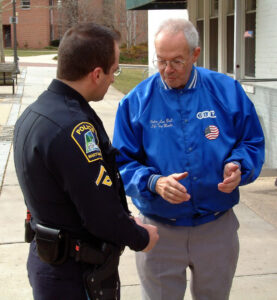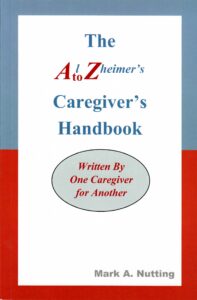The holiday season is a difficult time for many people, especially, if you are caring for a loved one with Alzheimer’s disease. The usual stressors include, financial hardships, family engagement with challenging dynamics, triggers of significant loss, travel complexities, meeting our family expectations and traditions, etc. These stressors are significantly heightened for your loved one with Alzheimer’s.
In order to create moments of pleasure and enjoyment during this stressful time, it is helpful to have some understanding of what your loved one is feeling. You, as the caregiver, are the person who affirms the feelings of safety and security for your loved one with Alzheimer’s. Your loved one will be acutely aware of how you are feeling; will absorb those feelings; and, will reflect them outwardly. It’s important to allow for lots of time for preparation for any event you are going to. Rushing will cause frustration, anger, and sadness.
Remembering that going outside the comfort of their own home will cause confusion, anxiety, insecurity, and fear. Familiarity and routine are most helpful to your loved one’s emotional state. If you are visiting the home of a family or friend who may not be as familiar, prepare to bring a bag of comfort items with you. Those comfort items may be a photo album, music with headphones, stuffed animal, blanket, books, favorite DVD, etc. Your tool box will allow you more opportunity to reassure your loved one in moments of fear. Avoid noisy and overstimulating environments. If your loved one is beginning to display agitation and comfort measures are not working, that is your cue that it is most likely time to go.
Always include your loved one in conversation by asking failure free questions or using touch to convey they are being included. Provide them with the opportunity to participate in purposeful activity, such as, drying the dishes, clearing the table, decorating the tree, folding napkins, etc. Remember, it doesn’t have to be done to your expectations; it doesn’t have to be done correctly; it just has to provide them with a feeling of usefulness.
Follow the golden rule… when your loved one asks you if he or she can help you… the answer is always YES. Make something up if you feel you don’t need any help. Provide your loved one an opportunity to have positive moments and feelings throughout the day. If you are observing negative expressions of emotions, offer validation, empathy, and then redirection to an opportunity to feel positive. All you can do is your best. Take care of yourself and always feel empowered to ask for help. This will provide you with more ability to care for your loved one with Alzheimer’s.







